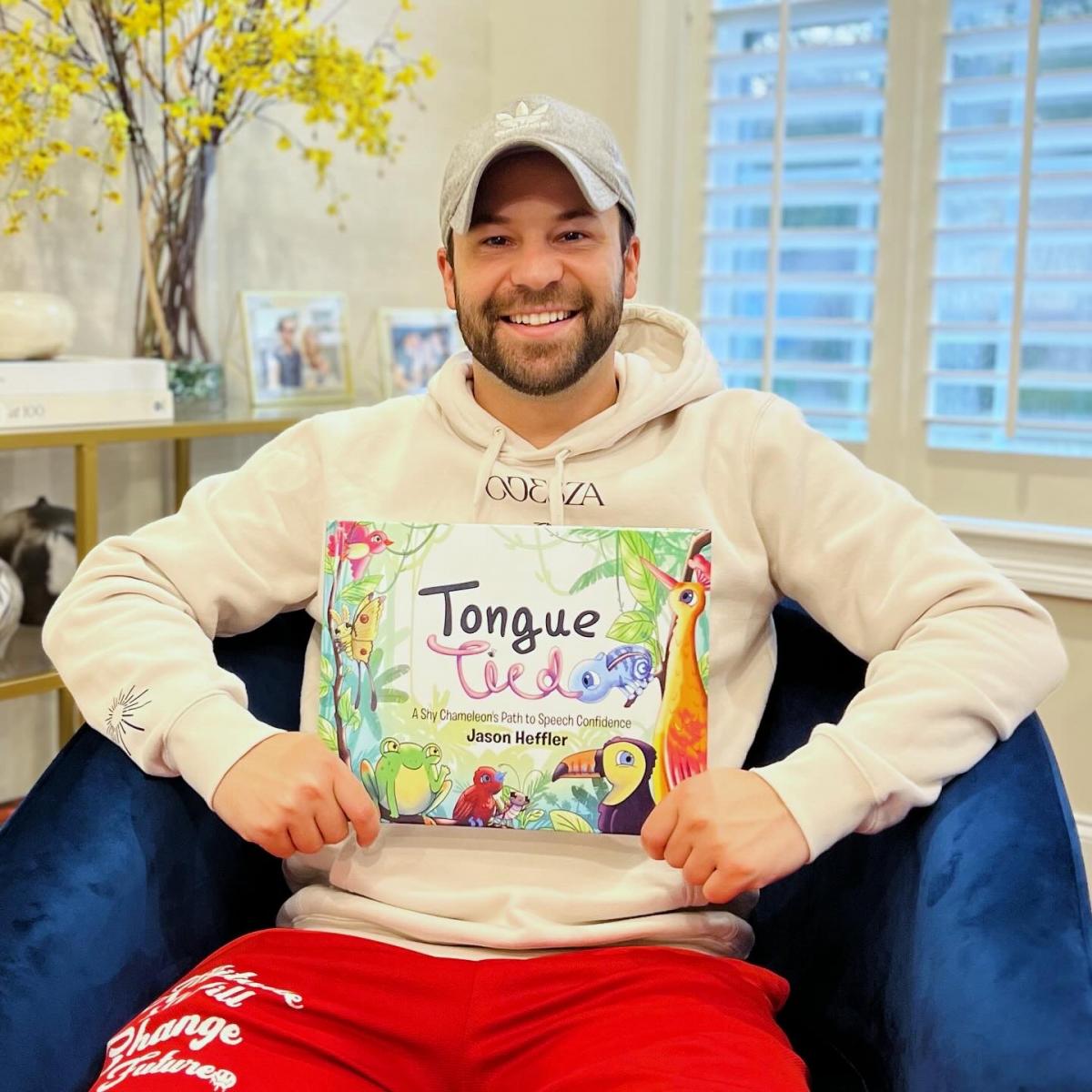DJ Fluencee Writes Children's Book on Stuttering
We interviewed Jason Heffler [1] for our Fall 2019 Magazine [2] when he was on tour as DJ Fluencee. We caught up with Jason once again to learn about how things are going, and what new projects he has been working on since we last connected.
When we last met you, you were performing as a DJ—how is that going and any major milestones since we last interviewed you?
 Yes! I performed at EDC Orlando, one of the nation’s largest and most popular electronic dance music (EDM) festivals. It was one of the most incredible experiences of my career. I was in a zone onstage and could really feel the crowd’s energy, especially when I spoke on the mic. However, my priorities started to change, and the stressful life of a touring artist became less appealing. I got married to my beautiful wife and we’re thinking about kids soon. I became an uncle after my twin sister had her first baby. I also landed an amazing job as the Managing Editor of EDM.com [3], the world’s leading electronic dance music publication, which keeps me very busy. So, I'm not DJing much anymore but I get to travel, cover the world’s best music festivals and interview artists I consider idols.
Yes! I performed at EDC Orlando, one of the nation’s largest and most popular electronic dance music (EDM) festivals. It was one of the most incredible experiences of my career. I was in a zone onstage and could really feel the crowd’s energy, especially when I spoke on the mic. However, my priorities started to change, and the stressful life of a touring artist became less appealing. I got married to my beautiful wife and we’re thinking about kids soon. I became an uncle after my twin sister had her first baby. I also landed an amazing job as the Managing Editor of EDM.com [3], the world’s leading electronic dance music publication, which keeps me very busy. So, I'm not DJing much anymore but I get to travel, cover the world’s best music festivals and interview artists I consider idols.
What new projects have you been working on since we last spoke of special interest to the stuttering community?

What should other people who stutter take away from your new project?
That you can, and will, live a very fulfilling life. Stuttering doesn’t define a person’s worth or potential. Your voice matters, even when it comes out differently. I also hope it sparks compassion in non-stutterers, helping them understand that patience and empathy can go a long way in supporting those who communicate differently. Since our thoughts are literally trapped in our throats, we’re constantly misunderstood and aching to connect deeper—if you let us.
Have you spoken with other people who stutter about your work and what it means to them? How can we find out more information about your latest project?
I’ve had the pleasure of hearing from doctors, parents and people who stutter, and what strikes me most is how they connect with the book’s central message: the idea that stuttering doesn’t need to be “fixed.” Instead of chasing a cure, they’ve shared how liberating it is to embrace the truth that their voice—exactly as it is—can carry them through a life filled with all the same possibilities as others. The book helps them see that their speech is just one part of who they are, and it can even be a weapon for self-assurance if wielded with intention. It's a shift from trying to hide or “correct” their stutter to actively acknowledging it. Far too late in life, I realized that if I overtly acknowledge my stutter in conversations with new friends, potential employers, interviews and so on, the person on the other end values my honesty and authenticity. You can find out more about Tongue Tied online at this link: rebrand.ly/tonguetied [4].
Anything new, fun, or interesting to report in your personal or professional life since we last spoke?
I appeared on the Emmy-winning show Good Day Philadelphia, the city's top morning news segment, to talk about the book and what it was like growing up with a stutter, and how I coped as a kid. I was extremely nervous. I’d never been on television and speaking for that many viewers in such a public manner was daunting, to say the least. But I sat down in front of the cameras and just went for it and got real. It was a surreal experience after rarely talking about my speech and childhood in private, let alone for this large of a viewership. And the best part? My parents and wife were there to see it. The anchors even pulled them from behind the cameras and asked them a few questions on-air, which was a completely unexpected shock.
You gave children and parents some advice during our last interview—anything you might change or add now?
My biggest piece of advice for parents of children who stutter is to embrace empathy and patience as their most powerful tools. Imagine a child who, like the chameleon in Tongue Tied, feels vulnerable or different because of how they speak. In those moments, it's not about fixing or hurrying them along, but about being a calm presence that shows them they are heard and loved just as they are. Don’t celebrate the moments when they speak up—normalize them. A child who feels safe and supported will build confidence in themselves, and that will carry them through challenges far beyond stuttering.
From the 2025 Winter Magazine [5]